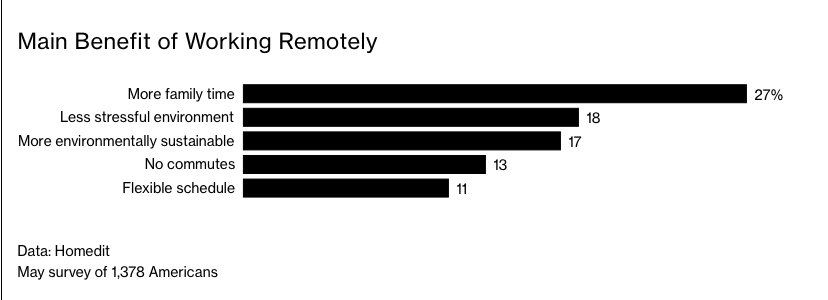Working from home
Bloomberg has written a few pieces recently on the rise of home working that is assumed now to be part of working landscape. The ECB announced this month that remote working for bank staff would continue until early next year. The ECB’s default solution to the spreading delta variant is remote working until ‘the end of January’. More and more organisations are warming to the idea of more home working post COVID-19. The main benefits from home working are seen as the following:
The sector that is experiencing a growth in home working is knowledge intensive services. See the table below:
Productivity boost
Before Covid it used to be a given that a work place could control where you lived to do your job. That used to be just part of the deal for many workers. However, that dynamic has shifted, especially as home working is seen as being so productive. According to a study by Jose Maria Barrero of Instituto Tecnologico Autonomo de Mexico productivity will be boosted by nearly 5%. The lack of commuting time is spent with extra working, This study was echoed by a Stanford University study from Nicolas Bloom which found working from home boosted productivity by 13%. Furthermore, many workers like it and a 2019 University of Oxford paper showed that happy staff would close more sales.
Changing city centre landscapes
City centre cafe’s, shops and hairdressers are most vulnerable to these changes. Similarly, as companies allow some element of home working then less office space will be needed. There could also be less traffic on the roads, especially around the peak rush hour.Furthermore, the change allows for a wider range of people to work from home including those with disabilities and mobility issues.
